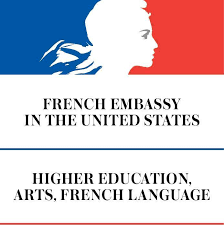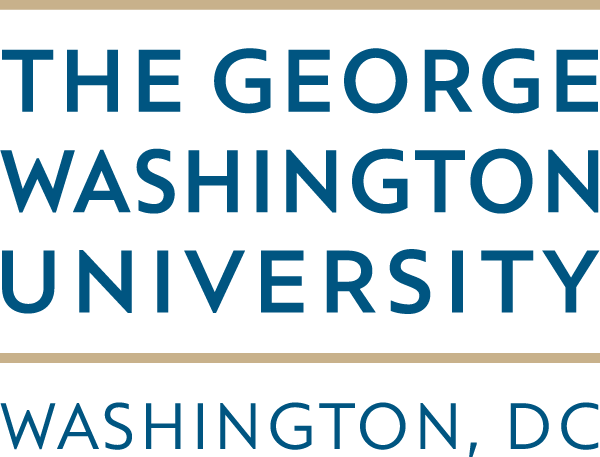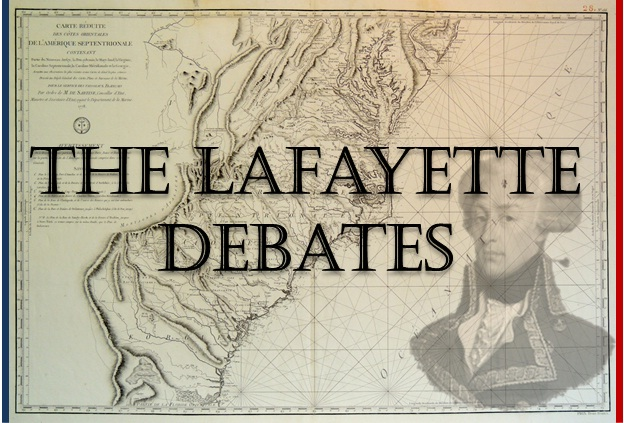"Combining the power of new information technologies with our countries’ shared intellectual traditions of public dialogue and debate, The Lafayette Debates is a groundbreaking educational initiative with the potential to serve as an international model for public diplomacy and civil society-building."
- United States Senator Mary Landrieu (1997-2015)
Organized by the Higher Education Departments of the French Embassies to the United States in partnership with The George Washington University, The Lafayette Debates seek to promote international civil society and enduring relations between the United States and France by engaging tomorrow's leaders today on the opportunities and challenges facing our rapidly globalized world. A core feature of The Lafayette Debates is the unique dialogue that emerges not only between the competing students, but also between the students and the French and U.S. professionals, scholars, soldiers, diplomats and others serving as judges for the competitions. This dialogue is continued on the Young Ambassadors study tour to Paris on which tournament champions explore the Lafayette Debates topic in conversations with leading French officials, academics and topic experts.
The Lafayette Debates tradition began in 1824 during the "hero's tour" to the United States of General Marquis de Lafayette and his son, George Washington Lafayette. During the tour General Lafayette and son attended a meeting of the debate and literary society of the Columbian College and the Lafayette Debates became an annual tradition at the college (which later changed its name to The George Washington University.) The Lafayette Debates were revived in 2013 by Emilienne Baneth-Nouailhetas, former Attache for University Cooperation at the Embassy of France to the United States, and Paul S. Hayes, Director of The George Washington University Debate & Literary Society.
The Lafayette Debates Young Ambassadors Program

Above: the 2015 Young Ambassadors discuss climate change policy with members of the French Legislature
The Young Ambassadors Program is an annual study tour to Paris awarded to tournament champions on which the debaters continue their exploration of the year's topic firsthand in discussions with French diplomats, politicians, academics and other French thought-leaders. During the tour the tournament champions serve as "Young Ambassadors" for their country. Afterwards the debaters are inducted into the Young Ambassadors Alumni Network to promote ongoing transatlantic dialogue and networking.
The Lafayette Debates Championship Trophies

Carte Réduite Des Côtes Orientales De L'Amérique (1778)
Each year The Lafayette Debates champions have the honor of presenting to their administrators for display at their school for the following year a truly remarkable “traveling trophy” symbolizing the deep and longstanding relationship between the United States and France, “Carte Réduite Des Côtes Orientales De L'Amérique (1778)."
Issued during the American Revolution for use by the French navy and merchant marine, this two-hundred-and-thirty-five year old map of colonial America locates the city of "York", also known as Yorktown, which soon after the map was issued was the scene of the French naval blockade that was the immediate cause of the surrender of Cornwallis and the end of the Revolution.
Above: 2014 Lafayette Debates Champions Emory University with Carte Réduite Des Côtes Orientales De L'Amérique.

The General Lafayette Trophy (1824)
Struck in 1824 by François Caunois, The General Lafayette Trophy is a commemorative medal celebrating the “hero’s tour” that led General Lafayette to become an honorary member of an American debating society and that inspired the creation of The Lafayette Debates. Each year, the top performing French or U.S. military academy team after the first day of competition will have the honor of presenting this trophy to their administrators for display at their school for the following year.
Above: 2017 Lafayette Debates Military Champions United States Military Academy with The General Lafayette Trophy.
Questions? Contact us here.


